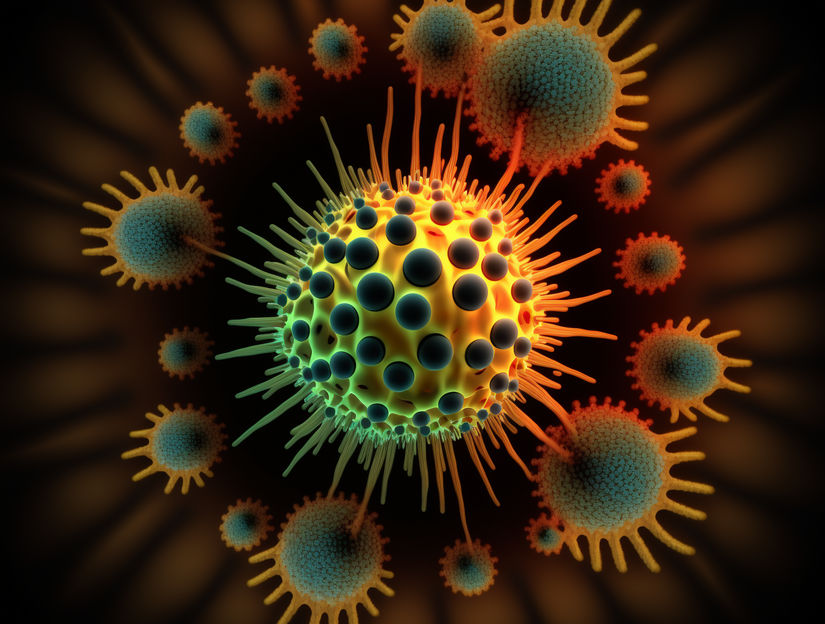What leads to severe COVID-19 diseases?
Research team analyses genetic and epigenetic regulators
Infection with SARS-CoV-2 leads to severe disease in some people, while others do not get ill or only experience mild disease. But why is this the case? Unfortunately, we do not know exactly. We do know that an overactive innate immune system is causing severe Covid-19 disease, but it is unclear how this is regulated. A team led by Professor Dr. Yang Li from Hannover Medical School (MHH) has come a step closer to answering this question. They addressed the question to what extent the course of disease is genetically or epigenetically regulated. The team included scientists from the MHH who, like Professor Li, also conduct research in the Cluster of Excellence RESIST.

Symbolic image
Computer-generated image
The team was able to identify underlying regulators of the malfunction of the innate immune system in COVID-19. In addition, it was able to confirm that certain already known genetic risk factors play a role in the development of the COVID-19 disease. The results have been published in the journal Cell Genomics. First authors of this publication are Dr Valerie Koeken, Dr Bowen Zhang and Dr Zhenhua Zhang. The research team conducted the study at the Centre for Individualised Infection Medicine (CiiM).
For this study, the team examined individual immune cells from the blood of COVID-19 patients using single-cell multiomics analysis. This technique can be used to simultaneously assess how cells are being regulated and how they are functioning. For this purpose, both the genetic material of the cells is examined and it is analysed if certain parts of the genome are ‘switched on’ (epigenetics) and if genes are being transcribed into ribonucleic acid molecules.
In a specific type of white blood cells (monocytes) whis are overactivated in severe COVID-19 disease, the team was able to identify how altered accessibility to chromatin is regulating gene expression and which transcription factors are steering these dysfunctional monocytes. In addition, they were able to identify how a specific genetic variant is contributing to a higher viral load and an increased risk of needing hospitalisation for COVID-19. This enabled them to identify one of the factors driving increased susceptibility to severe disease in certain individuals. "Overall, our study highlights the multiple genetic and epigenetic regulators that contribute to COVID-19," summarises Prof. Li.
Original publication
Other news from the department science
Most read news
More news from our other portals
See the theme worlds for related content
Topic World Cell Analysis
Cell analyse advanced method allows us to explore and understand cells in their many facets. From single cell analysis to flow cytometry and imaging technology, cell analysis provides us with valuable insights into the structure, function and interaction of cells. Whether in medicine, biological research or pharmacology, cell analysis is revolutionizing our understanding of disease, development and treatment options.

Topic World Cell Analysis
Cell analyse advanced method allows us to explore and understand cells in their many facets. From single cell analysis to flow cytometry and imaging technology, cell analysis provides us with valuable insights into the structure, function and interaction of cells. Whether in medicine, biological research or pharmacology, cell analysis is revolutionizing our understanding of disease, development and treatment options.




















































